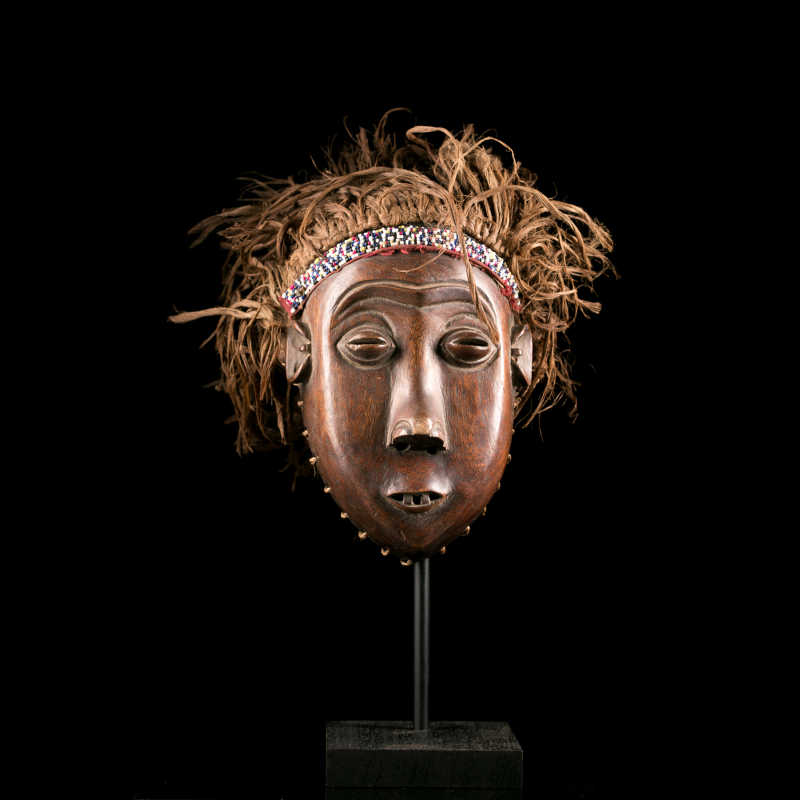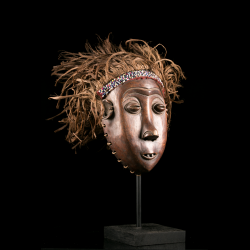









The Pwevo masks of Zambia and the Mwana Pwo masks of Angola share a great similarity. Both represent idealized feminine figures, symbolizing beauty, fertility, and the spiritual qualities of ancestors. Used in ceremonies and ritual dances, these masks testify to the cultural interconnectedness between the peoples of the region, reflecting common themes of respect for ancestors and the celebration of femininity.
The presented mask belongs to the Lovale ethnic group of Angola. It has several distinctive features: Carved from dark wood, it has a smooth patina, indicating its use and age. The mask's face is elongated with stylized features. The half-closed eyes and closed mouth suggest an expression of tranquility and serenity. A headdress made of plant fibers and multicolored beads surrounds the top of the mask, adding a touch of color and texture. The beads form a decorative band above the forehead, while the plant fibers mimic disheveled hair. Small holes border the bottom of the mask, likely used to attach the mask to a ritual costume.
Lovale masks play a central role in ritual ceremonies and cultural festivities. They are often used in the following contexts:
Initiation Ceremonies: The masks are worn during rites of passage, particularly those marking the transition of young boys to adulthood. The mask wearer, often a respected member of the community, embodies an ancestral spirit or a mythological figure.
Dances and Festivities: During certain ritual dances, the masks serve to invoke the spirits of ancestors. These dances can take place during harvests, weddings, or other important celebrations.
Spiritual Protection: The masks are also used to protect the community from evil spirits. They act as intermediaries between the world of the living and the spiritual world, thus ensuring the village's peace and prosperity.
Communication with Ancestors: The Lovale believe that the masks enable communication with the spirits of the ancestors, offering guidance and protection to the community. The masks are therefore treated with great respect and are often considered sacred objects.
This Lovale mask perfectly illustrates the cultural and spiritual richness of this people. It highlights the importance of masks in social and religious life, where they are not just art objects but essential instruments of tradition and spirituality.
Data sheet